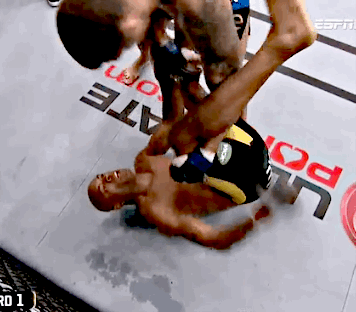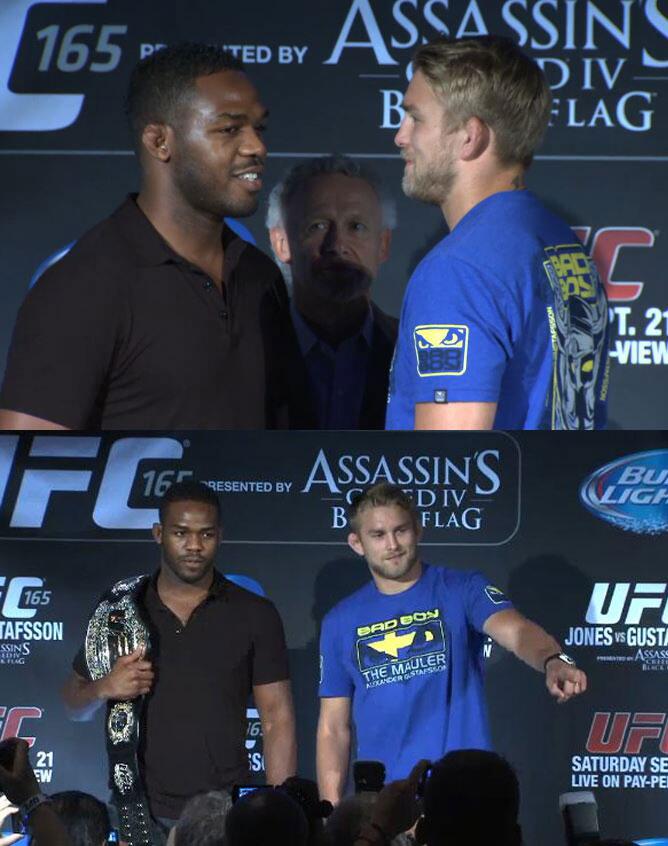For five years I’ve been a fan of mixed martial arts, and for five years I could count on Anderson Silva being the UFC middleweight champion the same way I could count on the turning of the earth. Anderson Silva, for me, has been the one immutable truth.
This past Saturday, of course, the indestructibility of Anderson Silva went the way of all immutable truths. Eventually time catches up to all myths and shows them for what they are: hopes, delusions, desperate grasps at meaning in a meaningless world. My reaction to Silva losing was far more emotional than I could have imagined because like a little kid dealing with the death of a grandparent I had been raised to trust that the champion’s immutability was someone thing I could believe in forever. It’s a weird thing waking up one morning and realizing that last night's reality no longer exists.
Still, I’m a reasonable guy, and I’d like to think I’m pretty comfortable with the idea that the ground beneath our feet is shaky. But the events of Saturday were so odd, so improbable and full of unanswered questions, that the whole evening feels like a blur. Chris Weidman is the new middleweight champion—that much we know--but the outcome felt like a half-victory. Weidman caught Silva clowning, hands down, chin out, dancing, faking wobbly legs, feigning fear, and no one—not Weidman, not his coaches, not his supporters—could possibly believe that he beat the best version of Anderson Silva. Rather, he beat the absolute worst version: the self-satisfied, cruel, showboating, indifferent Anderson Silva not even Silva's biggest fans can stomach. That lack of a resolution left me feeling unsatistfied at the end of the night, as I suspect it did Chris Weidman, who, no matter how long he wears the belt, will always have a voice in the back of his head nagging him: You didn’t beat the best; he beat himself.
The question, of course, is why. Why did Anderson Silva beat himself? Did he lose his passion for fighting, as some have theorized. Was he fed up with the expectations and responsibilities that come with being a champion—expectations and responsibilities he carried for seven years? Or did he honestly underestimate Weidman? Did he fail to realize that every man, even himself, can get caught on the chin when the stars, the fates, and the other fighter’s gameplan align? Did he believe his own hype?
On Friday I wrote that Anderson Silva is a genius—perhaps the only genius MMA has produced—and that genius should always be witnessed by those lucky enough to be living in its era. But what I didn’t say, and what I wasn’t even thinking about at the time, was that there is a downside to genius that should make our efforts to be witnesses that much more urgent: Genius can grow tired of itself. Michael Jordan took up baseball just to relieve the boredom of being a basketball genius, and I suspect that’s what happened with Anderson Silva: not that he got too cocky (though there’s some of that as well) but that he simply got fed up with being brilliant. For seven years, he existed on a different plan than everyone he came in contact with—faster, stronger, smarter, more technical--and after a certain point even geniuses want to live where everyone else does. Silva looked uninspired, which is the lingering threat hanging over the head of any great artist, particularly one for whom inspiration borders on the spiritual.
Last Saturday night, I think that Anderson Silva tapped into some deeper, subtler, and ultimately more deflating understanding of the universe and wanted to communicate to us that understanding: that there are no answers and there is nothing conclusive in this world: that the myths we believe in and rely on are just myths, castles built on clouds. Maybe he wanted to expose the lie he helped perpetuate—that some things are perfect, ideal, and untouchable. Maybe he wanted us to see that only fools look for assurances in this most elliptical of realities.






